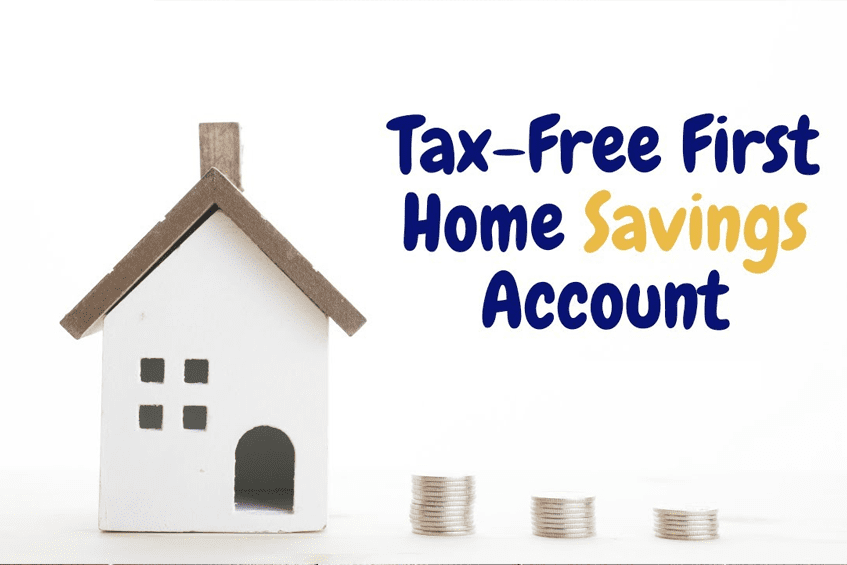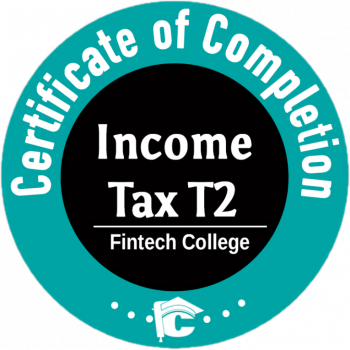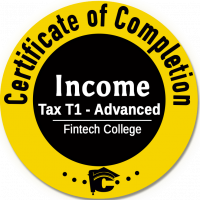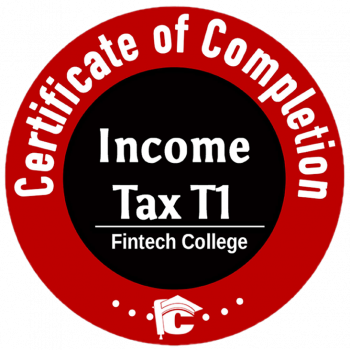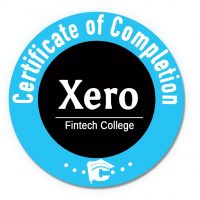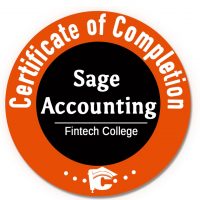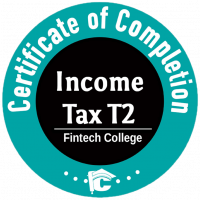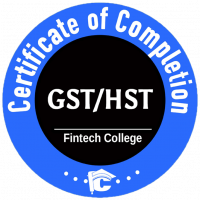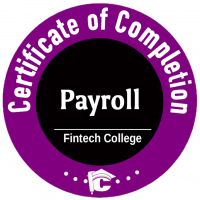On April 7, 2022, the Government’s budget was presented.
Below are the Personal Tax Insights from this year’s announcement.
Tax-Free First Home Savings Account
The budget proposes to create a new registered account, the Tax-Free First Home Savings Account (FHSA). Individuals will be able to open an FHSA in 2023.
To open an FHSA, an individual must be a resident of Canada and over 17 years of age, and must not have lived in a home that they owned during the year the FHSA is opened or during the preceding four calendar years.
The lifetime limit on contributions to an FHSA will be $40,000, subject to an annual limit of $8,000. Contributions will be deductible and income earned in an FHSA will not be subject to tax. Unused annual contribution room cannot be carried forward. Individuals will also be allowed to transfer funds from a Registered Retirement Savings Plan (RRSP) to an FHSA on a tax-free basis, subject to the contribution limits.
Withdrawals from an FHSA to make a qualifying first home purchase will be non-taxable. Once an individual has made a non-taxable withdrawal to purchase a home, they will be required to close the FHSA within a year of the first withdrawal and will not be eligible to open another FHSA.
If an individual has not used the FHSA funds within 15 years of opening the FHSA, it will have to be closed. Withdrawals from an FHSA for non-qualifying purposes will be taxable. To provide flexibility, individuals will be able to transfer funds tax-free to an RRSP or Registered Retirement Income Fund (RRIF).
The Home Buyers’ Plan (HBP) will continue to be available, but an individual will not be permitted to make both an FHSA withdrawal and an HBP withdrawal in respect of the same qualifying home purchase.
Home Buyers’ Tax Credit
For acquisitions of a qualifying home made after December 31, 2021, the budget proposes to double the First-Time Home Buyers’ Tax Credit (HBTC), available to first-time home buyers, from $750 to $1,500. The HBTC is a non-refundable credit and can be split between spouses or common-law partners.
A qualifying home is one that the individual (or individual’s spouse or common-law partner) intends to occupy as their principal residence no later than one year after its acquisition.
An individual is a first-time home buyer if neither the individual nor the individual’s spouse or common-law partner owned and lived in another home in the calendar year or any of the four preceding calendar years. The HBTC is also available for certain acquisitions for the benefit of an individual eligible for the Disability Tax Credit, even if not a first-time home buyer.
An Extended and More Flexible First-Time Home Buyer Incentive
Budget 2022 announces an extension of the First-Time Home Buyer Incentive to March 31, 2025. The Government is also exploring options to make the program more flexible and responsive to the needs of first-time home buyers, including single-led households.
Additional Housing Support
The Budget proposes to provide a one-time $500 payment in 2022-23 to those facing housing affordability challenges. The specifics and delivery method will be announced at a later date.
Ban on Foreign Investment in Canadian Housing
Budget 2022 proposes restrictions that would prohibit foreign commercial enterprises and people who are not Canadian citizens or permanent residents from acquiring non-recreational, residential property in Canada for a period of two years. Exemptions would apply for refugees, international students on the path to permanent residency and individuals on work permits who are residing in Canada.
Multigenerational Home Renovation Tax Credit
The budget proposes to introduce the Multigenerational Home Renovation Tax Credit (MHRTC), a refundable credit on eligible expenses for a qualifying renovation. The value of the credit is 15% of the lesser of the eligible expenses and $50,000, and applies in respect of work performed and paid for, or goods acquired, after December 31, 2022.
A qualifying renovation is one that creates a secondary dwelling unit to permit an eligible person to live with a qualifying relation. Eligible persons include individuals who, at the end of the taxation year that includes the end of the renovation period, are over 64 years of age or are over 17 years of age and eligible for the Disability Tax Credit. A qualifying relation in respect of an eligible person includes an adult individual who is a parent, grandparent, child, grandchild, brother, sister, aunt, uncle, nice, nephew or spouse or common-law partner of any of those individuals.
Expenses eligible for the MHRTC include the cost of labour and professional services, building materials, fixtures, equipment rentals and permits. Items that retain a value independent of the renovation (e.g. furniture, construction tools, audio-visual electronics) would not qualify, nor would financing costs or the cost of recurring or routine maintenance, gardening, housekeeping or security.
The MHRTC may be claimed by an individual who ordinarily resides, or intends to ordinarily reside, in the eligible dwelling within 12 months after the end of the renovation period and who is an eligible person, the spouse or common-law partner of an eligible person, or a qualifying relation in respect of an eligible person. The MHRTC may also be claimed by a qualifying person, in respect of an eligible person, who owns the eligible dwelling. One or more eligible claimants may share the MHRTC.
Home Accessibility Tax Credit
The Home Accessibility Tax Credit (HATC) is a non-refundable credit available on eligible home renovation expenses in respect of an eligible dwelling of an individual eligible to claim the Disability Tax Credit, or who is older than 64 at the end of a tax year.
For eligible expenses incurred after 2021, the budget proposes to increase the annual expense limit of the HATC from $10,000 to $20,000. The value of the HATC will be calculated by applying 15% to the lesser of the eligible expenses and $20,000.
Residential Property Flipping Rule
For residential properties sold after December 31, 2022, the budget proposes that profits arising from dispositions of properties owned for less than 12 months would be deemed to be business income.
The proposed deeming rule would not apply if the disposition of the property is in relation to certain life events, including death, the addition of a related person, separation, personal safety, disability or illness, a qualifying employment change, insolvency or an involuntary disposition (e.g. natural disaster).
Where the new deeming rule applies, the Principal Residence Exemption would not be available. Where the new deeming rule does not apply (because of a life event listed above or because the property was owned for 12 months or more), it is still a question of fact whether profits are taxed as business income.
Minimum Tax for High Earners
The budget announces the government’s intention to examine a new minimum tax regime targeting high income Canadians. Details on a proposed approach will be released in the 2022 Fall Economic and Fiscal Update.
Labour Mobility Deduction for Tradespeople
The budget proposes to introduce a labour mobility deduction for tradespeople, to recognize certain travel and temporary relocation expenses of workers in the construction industry. This measure would allow eligible workers to deduct up to $4,000 in certain eligible expenses per year, to a maximum of 50% of the employment income from construction activities at the particular work location.
Eligible workers would be a tradesperson or apprentice who:
- temporarily relocates to obtain or maintain employment under which the duties are of a temporary nature in a construction activity at a particular work location, and
- ordinarily resided (prior to the relocation) in Canada and, during the period of the relocation, at temporary lodging in Canada near the work location
To qualify, the temporary relocation must be at least 150 kilometers closer than the ordinary residence and for a minimum duration of 36 hours, and the work location must be in Canada.
Eligible expenses include reasonable amounts associated with temporary lodging near the work location, transportation for one round-trip from the location where the individual ordinarily resides to the temporary lodging, and meals for the individual in the course of travel while making one round trip to and from the temporary lodging.
Individuals would not be entitled to claim lodging expenses for a period, unless they maintain an ordinary residence elsewhere for their or their immediate family’s use during that time period.
This measure would apply to the 2022 and subsequent taxation years.
Medical Expense Tax Credit for Surrogacy and Other Expenses
The budget proposes to extend the Medical Expense Tax Credit (METC) to a broader definition of “patient,” in cases where an individual would rely on a surrogate or donor to become a parent. In these cases, a “patient” would be defined as:
- the taxpayer
- the taxpayer’s spouse or common-law partner
- a surrogate mother; or
- a donor of sperm, ova or embryos
This broader definition would allow medical expenses paid by the taxpayer (or the taxpayer’s spouse or common-law partner), with respect to the surrogate mother or donor, to be eligible for the METC.
The budget proposes to allow reimbursements of expenses to a patient, under the expanded definition above, to be eligible for the METC provided that the reimbursement is made in respect of an expense that would generally qualify for the METC.
The budget also proposes to permit fees paid to fertility clinics and donor banks, in order to obtain sperm or ova, to be eligible under the METC. Only expenses incurred in Canada will be eligible.
This measure will apply to expenses incurred in 2022 and subsequent years.
Borrowing by Defined Benefit Pension Plans
Registered pension plans are restricted from borrowing money except in limited circumstances. Generally, borrowing is allowed for the acquisition of income producing real property in certain cases and for borrowing where the term of the loan does not exceed 90 days and the property of the plan is not pledged as security for the loan. Temporary rules permit borrowing for terms longer than 90 days if repaid by April 30, 2022.
The budget proposes to provide additional borrowing flexibility to administrators of defined benefit registered pension plans (other than individual pension plans) by replacing the 90-day term limit with a limit on the total amount of borrowed money (for purposes other than acquiring real property) equal to the lesser of:
- 20% of the value of the plan’s assets (net of unpaid borrowed amounts), and
- the amount, if any, by which 125% of the plan’s actuarial liabilities exceeds the value of the plan’s assets (net of unpaid borrowed amounts)
The new borrowing limit would be redetermined on the first day of each fiscal year of the plan based on the value of assets and unpaid borrowed amounts on that day and the actuarial liabilities on the effective date of the plan’s most recent actuarial valuation report.
This measure would apply to amounts borrowed by defined benefit registered pension plans (other than individual pension plans) on or after April 7, 2022.
Reporting Requirements for RRSPs and RRIFs
The budget proposes to require financial institutions to expand the annual reporting required on each RRSP and RRIF administered by the financial institution, to include the total fair market value, determined at the end of the calendar year, of property held in the RRSP and RRIF. This increased reporting is intended to assist the CRA in its risk-assessment regarding qualified investments held by RRSPs and RRIFs.
This measure would apply to the 2023 and subsequent taxation years.
Annual Disbursement Quota for Registered Charities
Annually, registered charities must spend a minimum of 3.5% of the value of the charity’s property that is not used in carrying out charitable activities or administration (property value), on its grants to qualified donees and/or its charitable programs (this is known as the charity’s “disbursement quota” [DQ]). The budget proposes to increase the DQ rate from 3.5% to 5% for the portion of property value that is in excess of $1 million.
The budget also proposes to allow the CRA to provide discretionary relief from the DQ, and to publicly disclose information relating to such a discretionary decision. The budget also proposes to remove a rule in the ITA, which allows the value of certain property that is accumulated under a permission of the CRA to be excluded from the DQ calculation. Approved property accumulations arising from permission to accumulate applications submitted to CRA prior to January 1, 2023 will still benefit from the current rule, which provides for a reduced DQ obligation.
These measures come into force for fiscal periods beginning on or after January 1, 2023.
Charitable Partnerships
Registered charities must carry on their charitable activities directly and/or provide gifts to other registered charities. However, some operating charities use intermediary organizations, that are not themselves qualified donees, to help them carry out their charitable activities. In such a case, the charity is obligated to maintain direction and control over its resources being used by the intermediary.
The budget proposes to clarify and improve the rules in this area by allowing charities to make disbursements to non-qualified donee-recipients, provided that certain accountability requirements are met. For example, the charity must (among other actions) conduct a pre-grant inquiry of the grantee, record the terms of the grant in a written agreement, monitor the grant for charitable use and, for the purposes as set out in the written agreement, obtain receipts or other documents from the grantee regarding the use of funds, receive both periodic reports and detailed final reports on the grantee’s use of the funds, and disclose such grants in excess of $5,000 in the charity’s annual information return. The budget will also prohibit a registered charity from accepting a gift that expressly or implicitly requires the charity to make a disbursement or provide a grant to a non-qualified donee.
The changes would apply upon royal assent of the enacting legislation.
Enhanced Charity Reporting
The government also indicated it intends to improve the collection of information from charities, including whether charities are meeting their disbursement quota, and on information related to investments and donor-advised funds held by charities.
To learn more about Personal Taxes, browse our course and Download Syllabus https://www.fintechcollege.ca/income-tax-t1/


